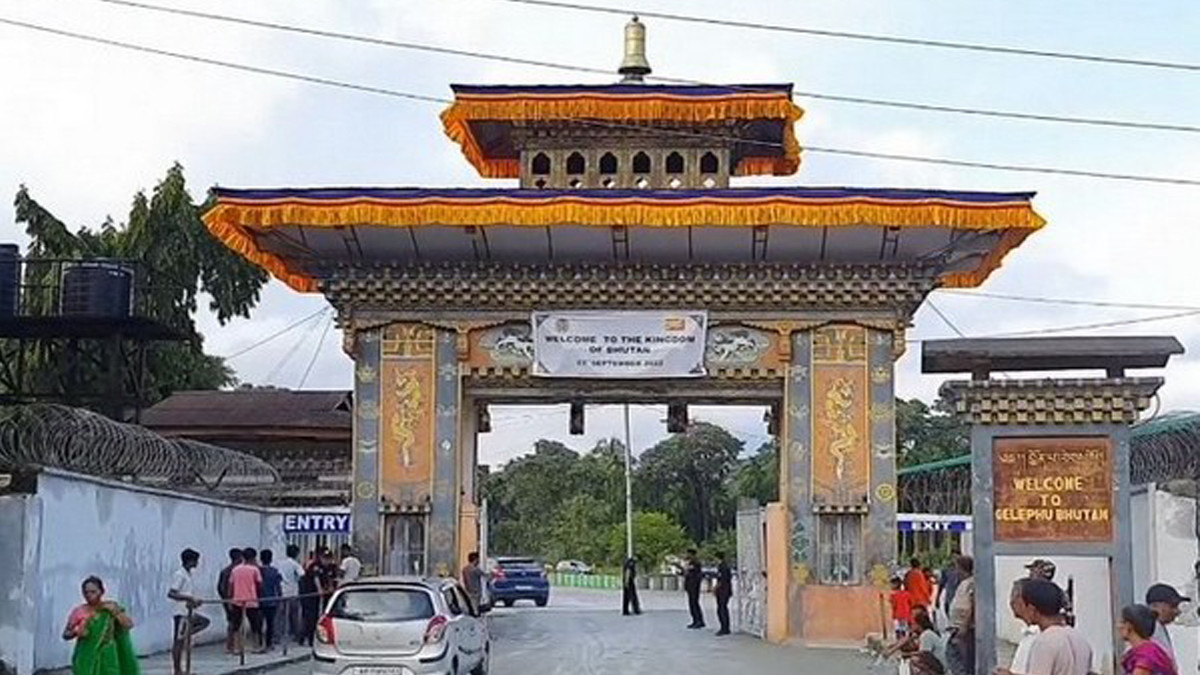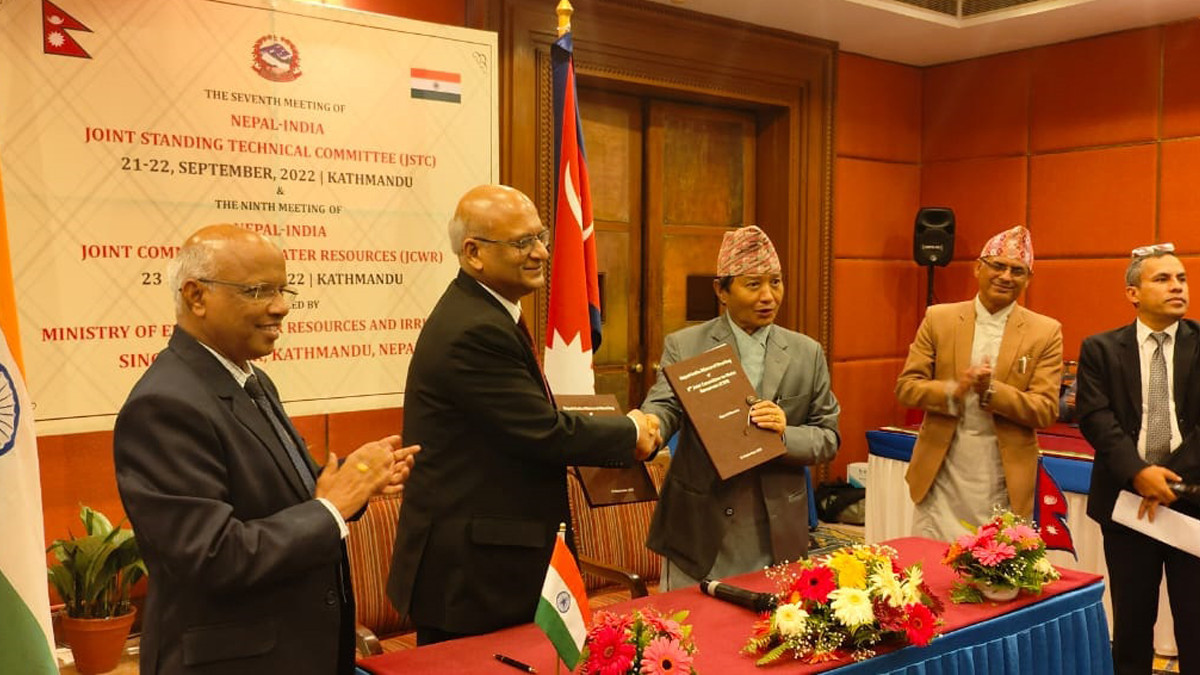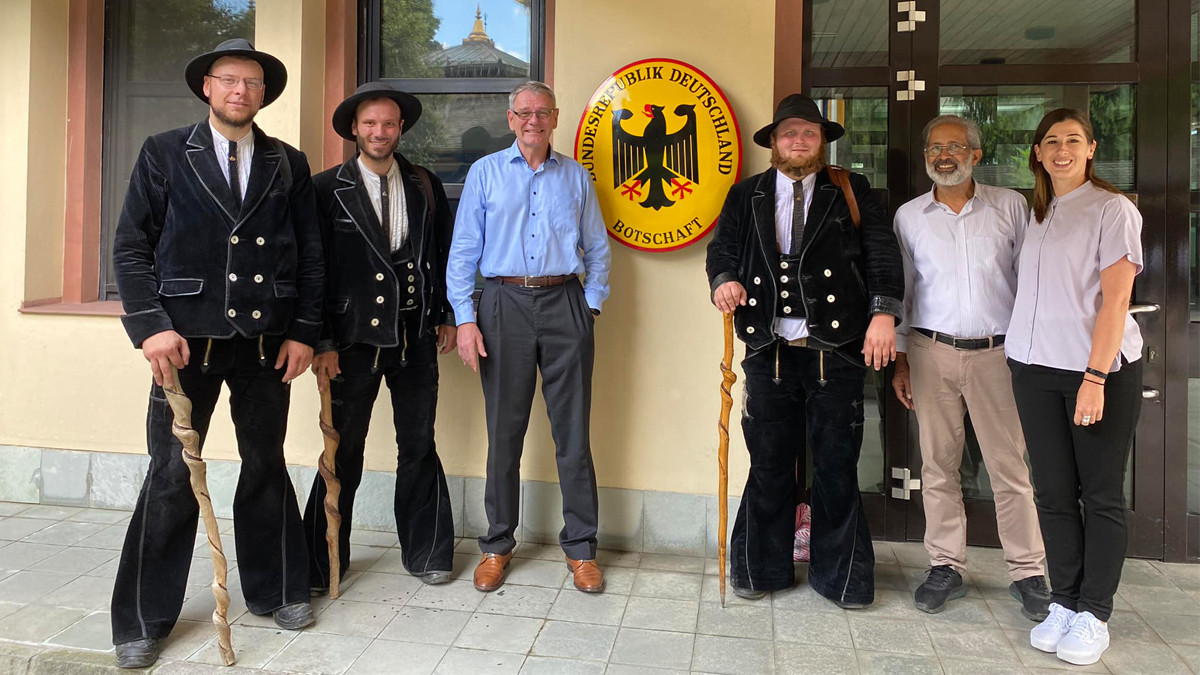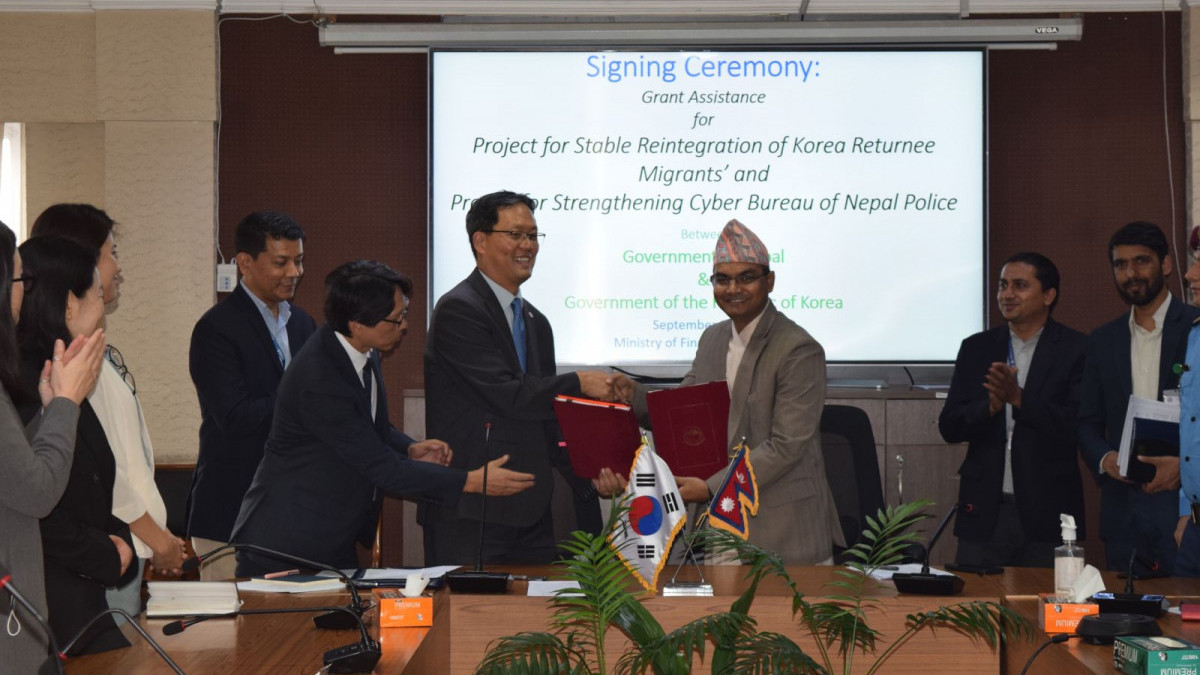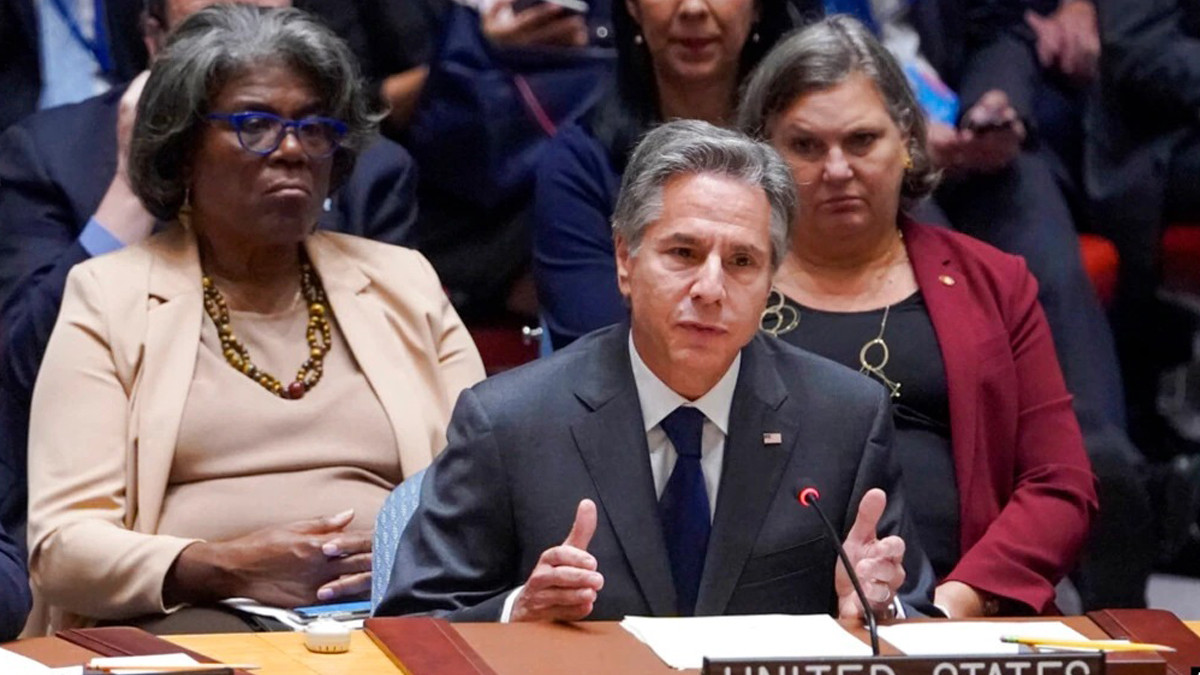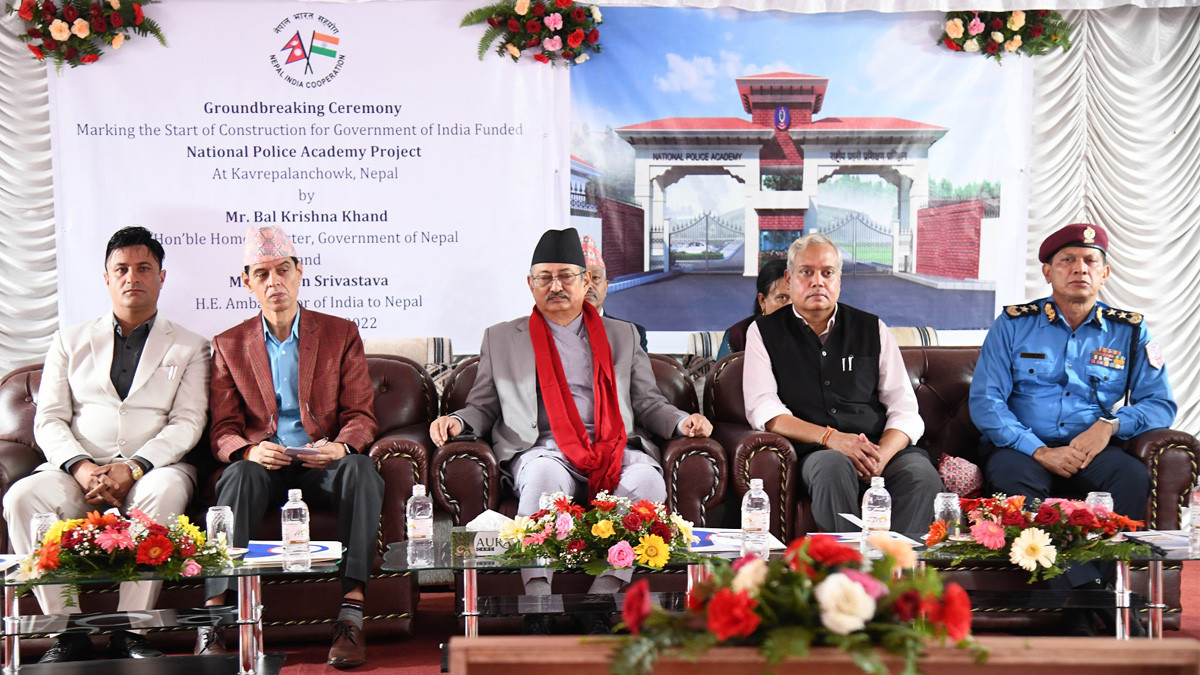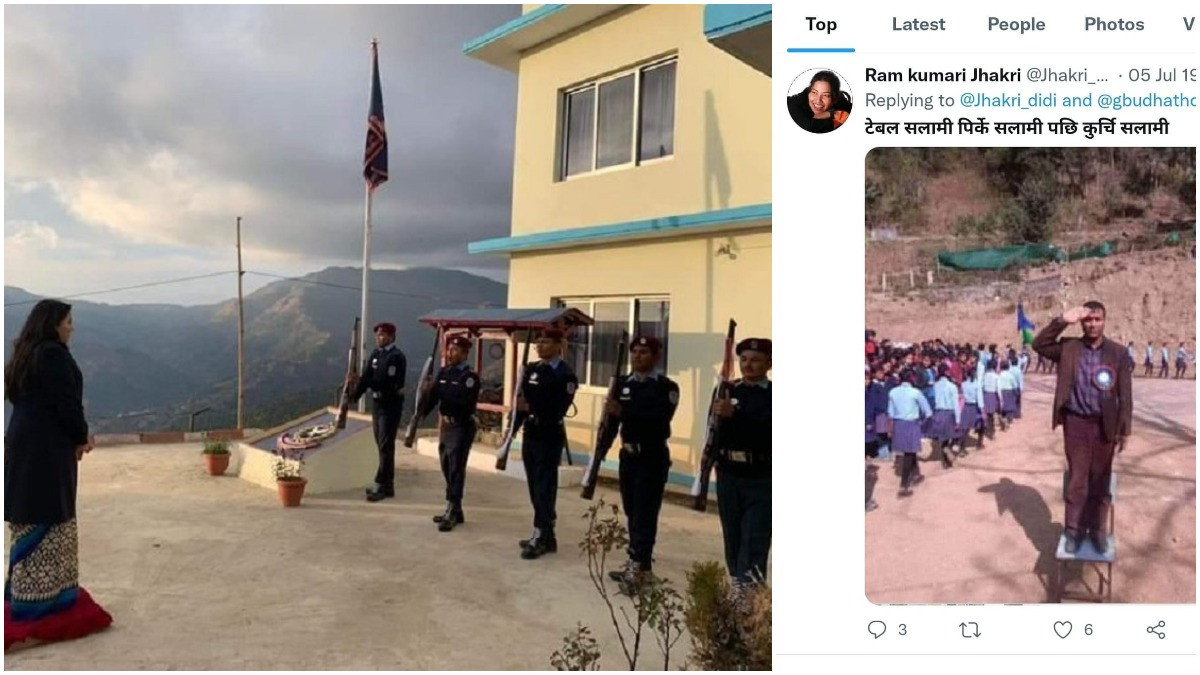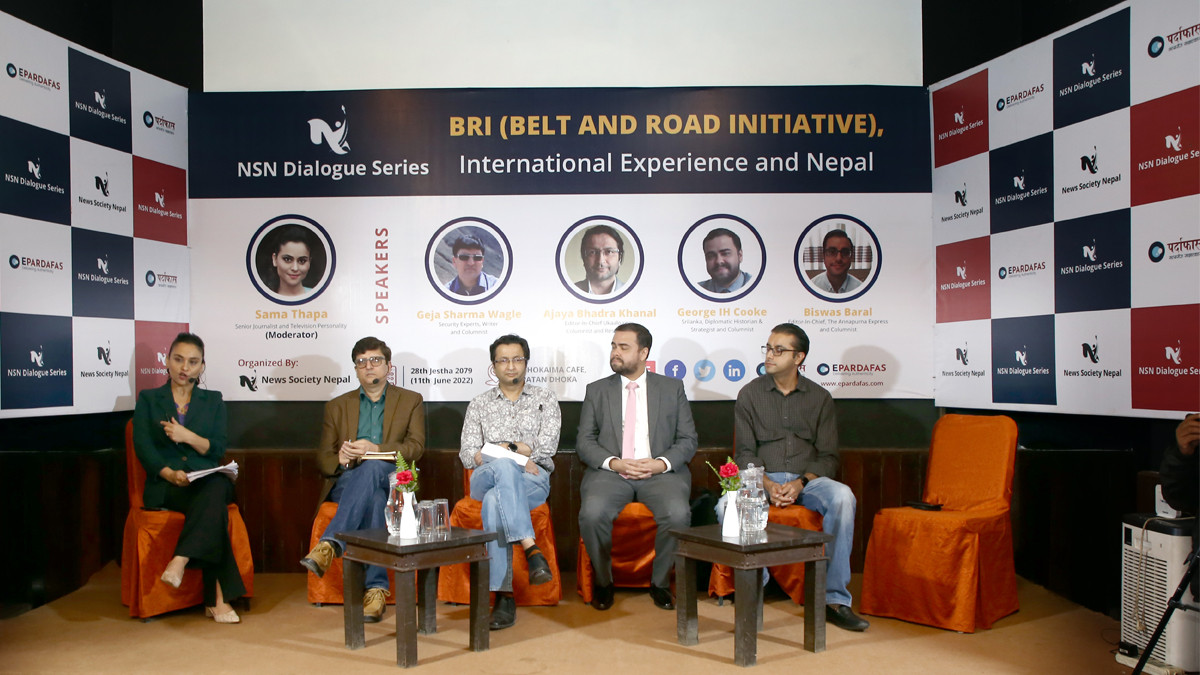
National and international experts, who have been closely studying international mega projects including those under China's Belt and Road Initiative (BRI) in Nepal, have stressed on the need of selecting such projects only if they fit in national interests.
They also underlined that Nepal should select any project only if that is commercially viable, transparent and is in line with the country's national policy and programs.
Airing their views in a program entitled Belt and Road Initiative: International Experience and Nepal, the experts said that a developing country like Nepal must be cautious while accepting international support as the donor countries have their own geopolitical as well as other interests. The event was organized by News Society Nepal, Publisher of pardafas.com and epardafas.com .
Diplomatic historian and strategist of Sri Lanka George IH Cooke said that countries can bring in a lot of investment but they have to be clear about what they are going to do from the investment.
"More than getting haphazard investments we should be conscious as to what is our national need, what is the national plan, is that investment fitting into the national policy and plan," he said. "If that doesn't fit into the national plan, it is going to be a very random, very haphazard investment. These are the questions we should start asking. It shouldn't be like it is accepted because it is given."
He also stressed on ensuring zero corruption, accountability and transparency in such projects.
"In Sri Lanka, now people have started asking questions. Now we have awakened. This is something Nepal should do too," he explained. "Is every dollar, every yuan, every euro being used productively? It shouldn't go into personal pockets."
Cooke was of the view that countries like China and the US are very clear about what to get from their investments in other countries but the recipient countries should also be equally clear about what they ultimately want to reap from their support.
Editor-in-chief of Ukaalo.com Ajaya Bhadra Khanal said every project to be developed from international support like BRI must be commercially viable.
He however was of the view that some of the projects built in Nepal with Chinese support weren't transparent and commercially viable. He said Pokhara International Airport, which was built with Chinese support, was one of such projects.
He thinks that the involvement of Chinese contractors in Nepal increased dramatically mainly after 2008 when Maoist government was formed in Nepal.
He said agents of Chinese state enterprises that are close to politburo members of the Chinese Communist Party (CCP) are involved actively in making deals.
"Their agents come to Nepal and sign a secret MOU with the ministry. They did the same in Pokhara International Airport in 2011," he said. "After that they take the MOU to China. Then, the Exim Bank of China gives financial commitment and then they come to Nepal and they bag the project."
He said a secret agreement was signed on building Pokhara International Airport as well.
"Nepal govt estimated to build the airport at $180 million but they (Chinese side) while bidding for the airport proposed $305 million at the minimum. The Bhairahawa International Airport of the same quality has been built at US$75 million," Khanal explained, "Thus the Chinese loan came for Pokhara International Airport by inflating the cost."
He said that after a long negotiation, the cost was finally settled on US$ 216 million. He thinks the airport isn't commercially viable.
"Still, it was built for monetary and political interest. This is an example of how we get Chinese loans," he added.
He also pointed out that the interest rate of Chinese loans is much higher than the interest rate of the loans given by other countries. "Average interest rate of the loan given by other donors globally is around 1.3 percent while the average interest rate of Chinese loans globally is 4 percent," he said.
Therefore, he thinks that there was a need to renegotiate BRI projects with the Chinese side.
"Also, the Nepal government from the Prime Minister's level has now said that we want grants to build BRI projects but can't take commercial loans," Khanal added.
Security expert and writer Geja Sharma Wagle pointed out the wrong practices of Nepali stakeholders with regard to developing mega projects with international support.
He said it was Nepali actors who have invited geopolitical gameplans of major international forces like China, the US and India instead of making best use of the support from developed countries.
"We Nepali ourselves are politicizing our mega projects unnecessarily. Therefore, we have failed to reap benefits from our donor countries' support," said Wagle.
He said that it was not only the BRI of China and Millennium Challenge Corporation (MCC) of the United States that were politicized, but also other mega road projects like Kodari Highway and hydroelectric projects like Arun, Upper Karnali, West Seti or Budhi Gandaki that were unnecessarily politicized by Nepali actors.
"We can't reap much benefit from our donor countries' support until and unless our political parties change this nature of politicizing mega projects."
He stressed on the need of bringing all the documents of such projects to the public domain and making them available for public debate.
"I propose that let's start a practice of endorsing each and every project with investments of above 50 billion rupees from the parliament that helps make such investment more transparent," Wagle argued.
Editor-in-chief of The Annapurna Express Biswas Baral said that the lack of consistent national view with regard to selecting BRI projects is the major weakness of Nepal.
"Leaders from communist parties like CPN-UML and Maoist Center seem to be interested in prioritizing BRI projects but Congress leaders don't seem so," said Baral. He said that such inconsistency of government policy has hampered progress in BRI projects.
Baral also argued that lack of clarity with regard to selecting projects based on Nepal's capacity was another aspect that has failed to convince the Chinese side.
"As far as I understand based on my research, the Chinese officials themselves don't want to push the railway project. They rather ask counter questions with us, 'Why don't you choose more viable projects'?"
He also pointed out the lack of participation of relevant government departments while selecting projects. Baral said he found that even officials of Nepal's railway department were not consulted when decisions were taken to push for railway projects at the political level.


